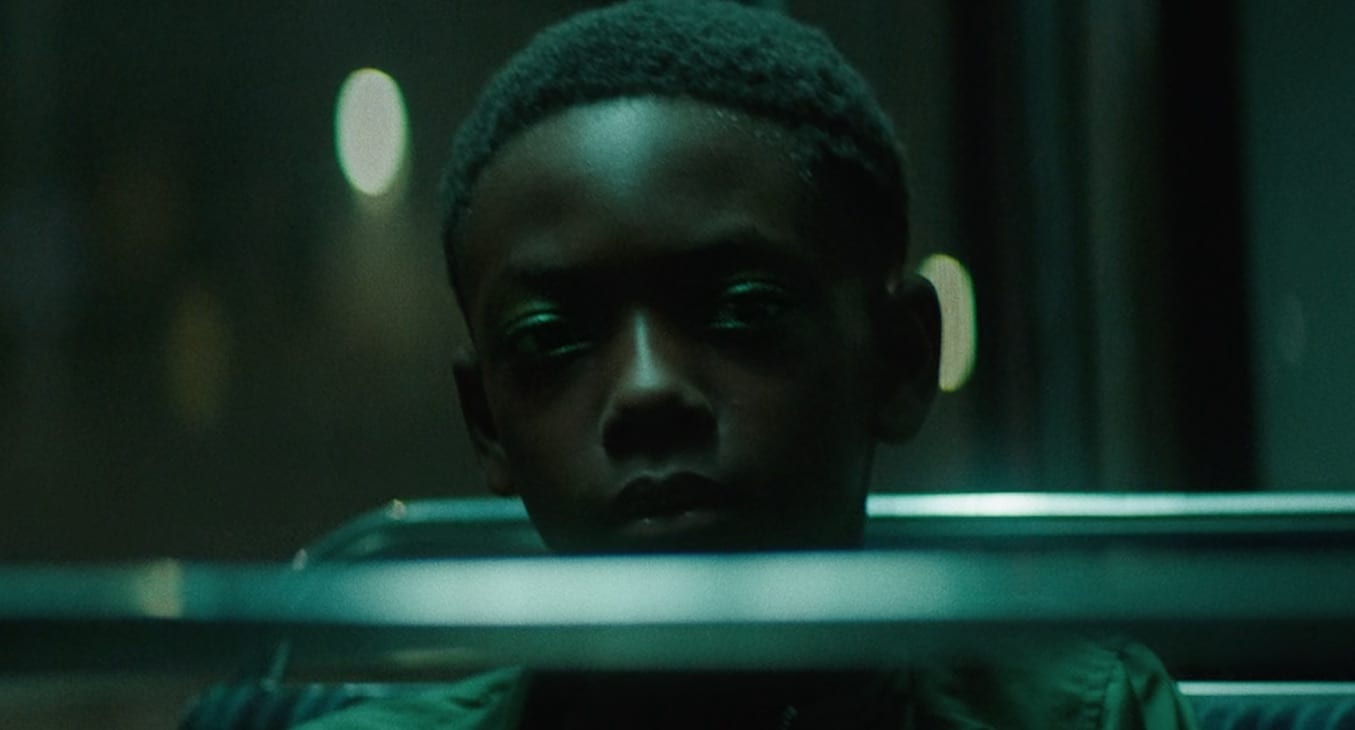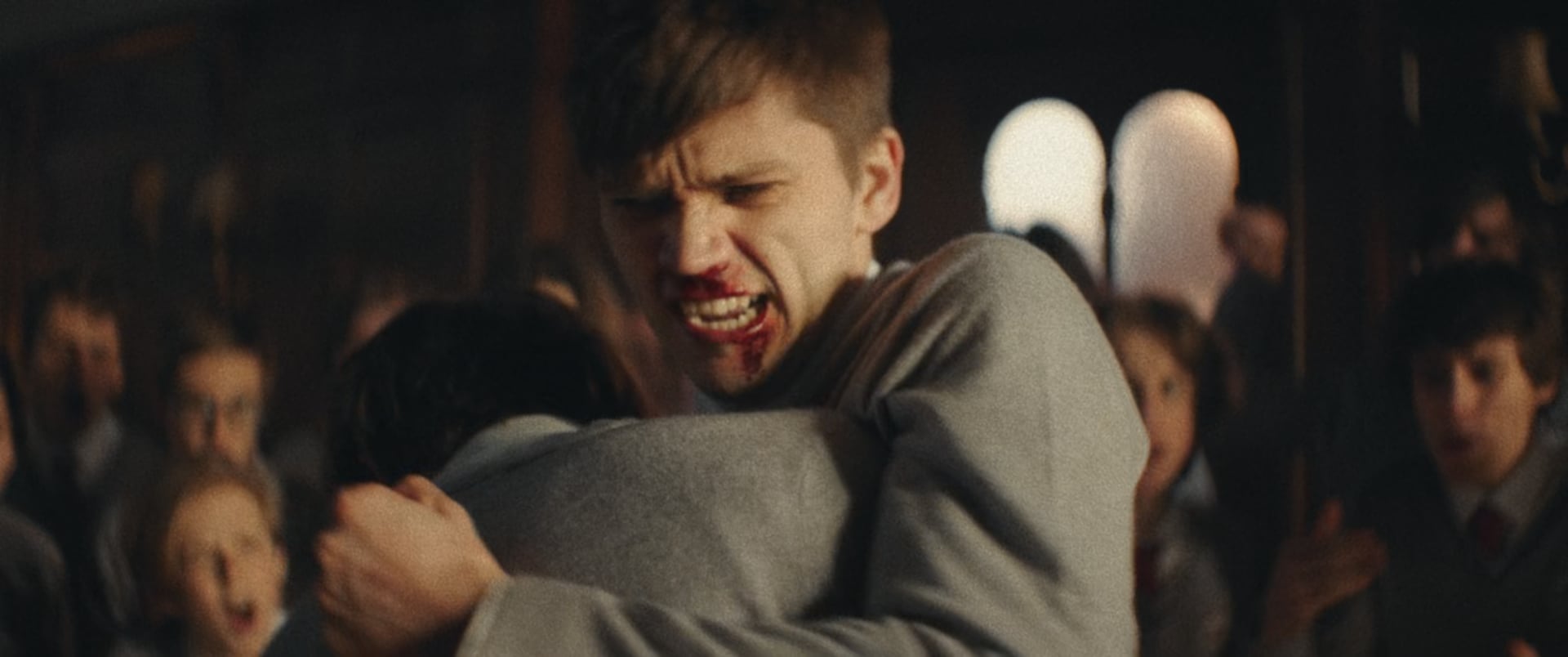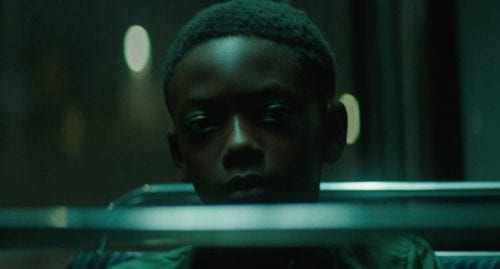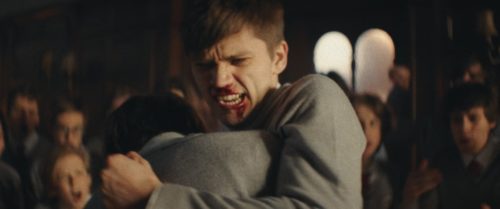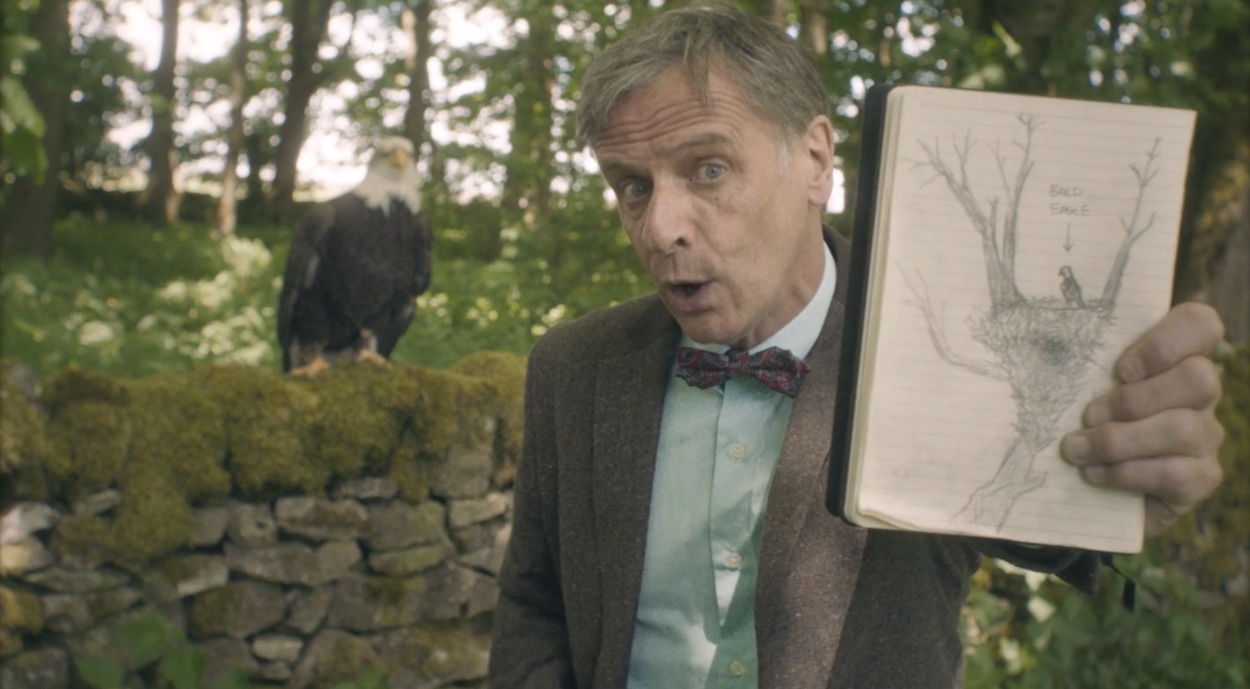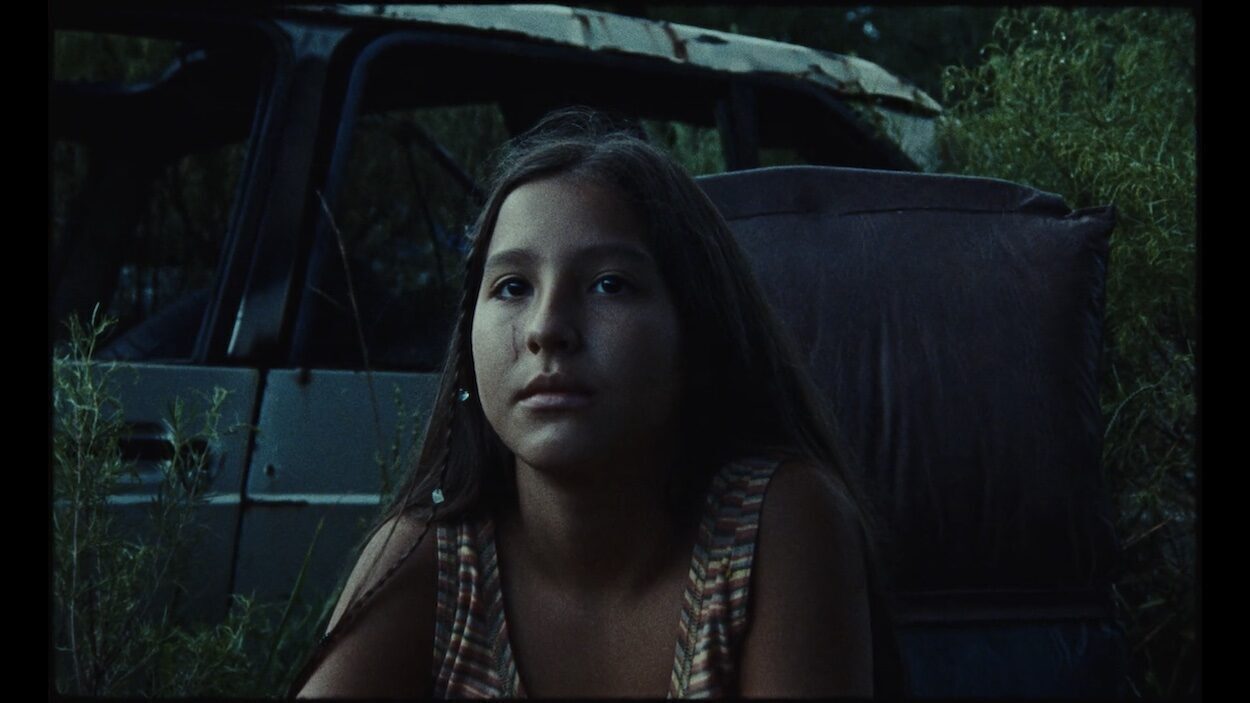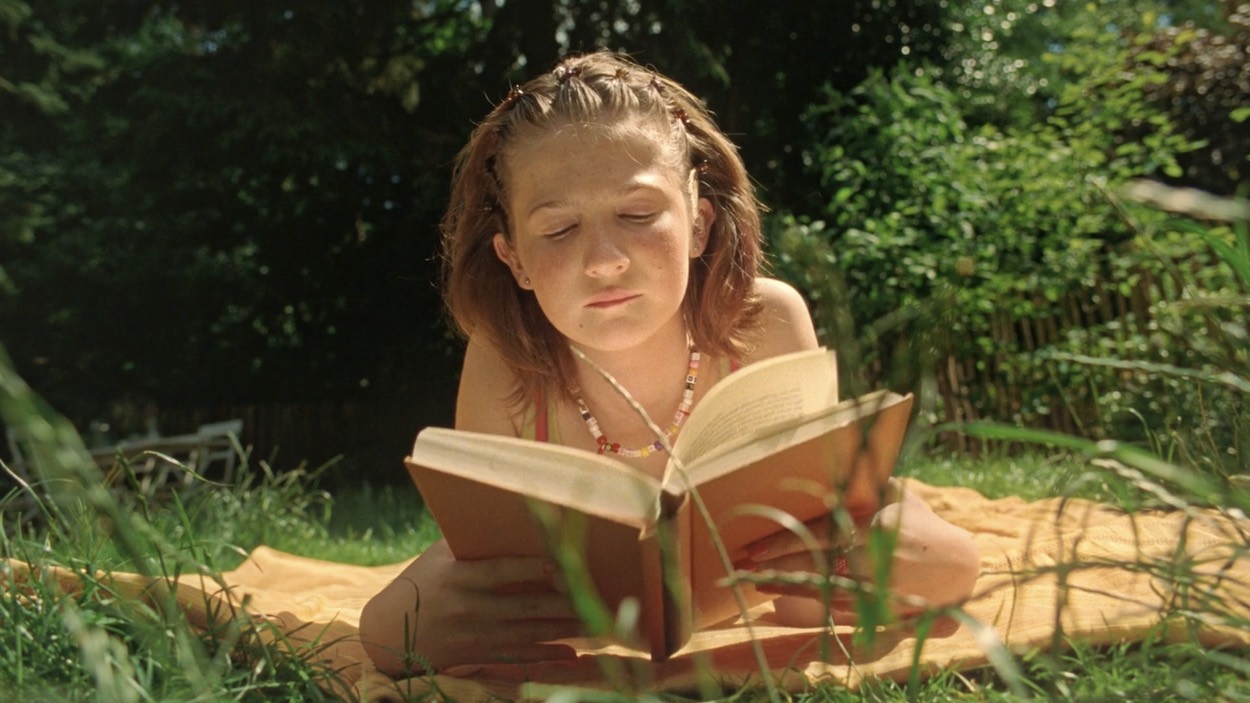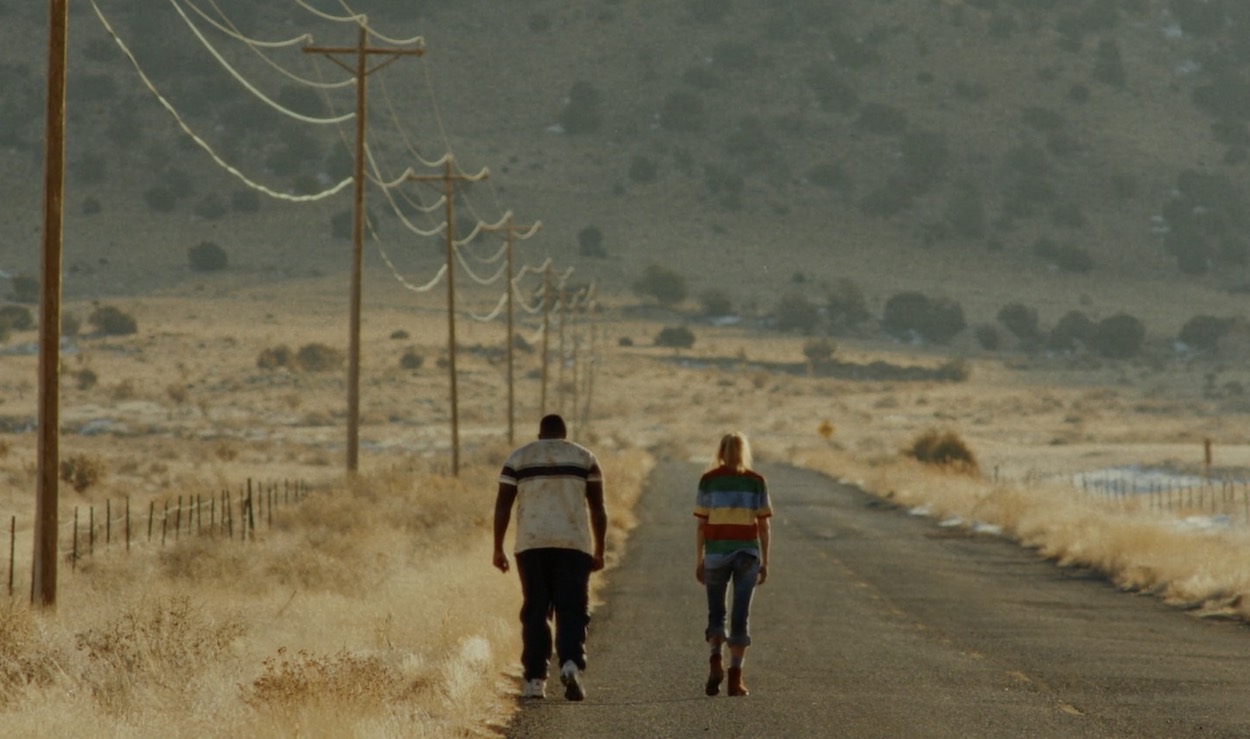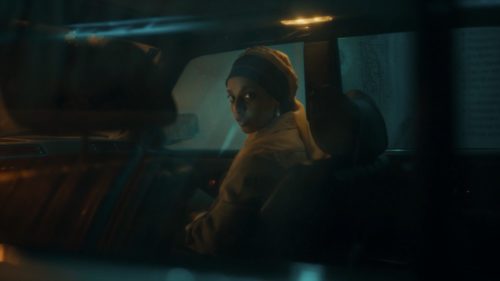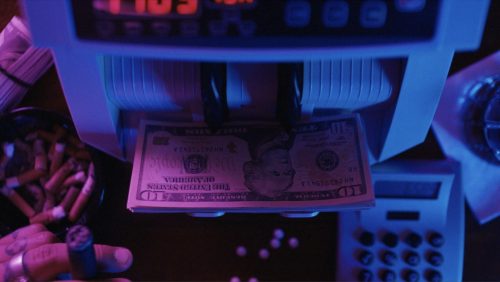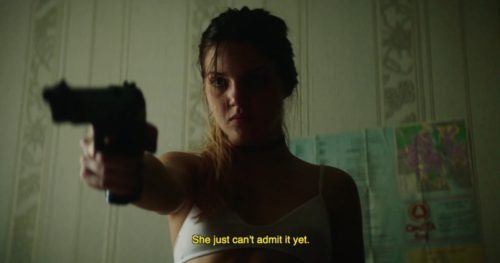Is this your Filmakademie Baden – Württemberg graduation film?
After Calvin Klein, Love (see above), this is the second film from my third year at film school. I’m in my final year now and I will shoot my graduation project this summer.
Was it a collaborative effort with other students at the academy – for instance who wrote the script?
At film school we usually have to pitch our projects in front of all students to win over a team for the production, so Dark Red was naturally a collaborative effort. I wrote the first script and the voiceover, but with my producer Philip Chrobot and Mortimer Hochberg, we refined the storyline and made it come alive with the tape recorder idea and different documentary-style scenes from the boy’s life. We worked in this constellation many times before and we get along as friends rather than just collaborators.
Did you write a treatment and storyboard in pre-production – was everything mapped out in detail before the shoot?
We had the whole wall in our office plastered with location photos, storyboard drawings and treatment snippets. I always wanted to try to combine a freestyle type of shoot with a planned, storyboarded kind, so I would say around half of the film was storyboarded, and half of it was shot instinctively on location. The scenes themselves were predefined, but there was still a lot of space for improvisation.
What was your criteria for casting – and how did you eventually find the star boy actor?
The one thing I wanted to see most was a boy with a grown-up soul. RSA recommended us a casting agent in London, Jeremy Zimmermann, and he agreed to help us with the project. We had around 30 kids appear at Spotlight and I gave each one my phone and told them to say farewell to their mothers, because they’re on a spaceship to Mars and this is the last message that they can send before the battery dies forever. Jeremiah Waysome, the boy we chose, immediately felt right because he left such a tender and resolute message that he gave us the chills.
How did you go about directing Jeremiah – did you have time to rehearse and workshop extensively with him?
I met Jeremiah a few days before the shoot and told him about my view on the story and the script. We had a quick read through, but I didn’t want him to practice and learn the text by heart, because that would’ve made his performance too stale.
With older actors I do rehearse a lot, but when I work with kids, I try to keep them away from the screenplay as much as possible. I once shot a short film with children, where we had much more time and rehearsed some scenes in detail. But these scenes turned out to be the worst in the film. This is why I tried to get Jeremiah into the right mood in each scene on location during the shoot, so he would never go into a robot kind of line-reading mode.
What was behind your decision to choose this location and where was it?
I wanted the film to almost feel like a documentary about a boy who is truly turning into a vampire. This is what made the whole idea interesting to me. This is also why we said we need everything to be as authentic as possible. We wanted a boy from the Black British community as our main cast, so we had to shoot the piece in the UK.
We wanted the feel of a poor, run-down neighbourhood, so we were scouting for around two weeks in and around London. We had some lucky finds such as the junkyard in North Poplar and the dark subway alley in Peckham. Since we had a restricted budget and wanted a car-free street, we had to go as far as Toxteth in Liverpool to shoot the opening shot of the boy walking around in his neighbourhood.
What were the main challenges of the production and how did you resolve them?
Given that we’re based in southern Germany and had a very restricted budget, this seemed almost impossible – and it nearly was, to be honest. We learned the hard way that you barely get anything for free, let alone for a discounted rate in the UK, even if you insist on the fact that you’re shooting a student project. So naturally everyone had to do several jobs at once, it wouldn’t have worked otherwise. Our producer Philip Chrobot, with help from local producer Tatenda Jamera from the NFTS school in London, managed the whole shoot in spite of our limited resources – huge kudos for that.
Is there anything you would alter in hindsight?
This is the toughest question. On the one hand, I would definitely need more preparation time and more budget for a piece like this, especially when the shoot is in the UK. But on the other hand, I don’t know how much of that raw spirit would be lost if everything was planned down to the last minute.
But yes, a bit more preparation time and a bigger team would still be better 🙂
Is there anything else you’d like to share about the film?
As we were researching blood cancer, I visited a boy with leukaemia in a children’s hospital. It was an almost surreal experience, because he was only 11 years old, yet he talked to me like he was a grown up. He was emanating a very calming and strong aura – something I have never seen in a kid before. This inspired us to focus more on the vampire boy’s storyline of becoming a strong adult who leaves his childhood behind. As for the message of the film: It’s really easy to register as a donor and it doesn’t hurt. You basically request a swab kit from one of the leading stem cell directories such as DKMS or NHB and off you go. At the end of the film we link to a microsite that we’re hosting, called fightbloodcancer.net with links to the related charities.
What’s next for you?
I would love to work in the UK so I will send my reel over to production companies there, hopefully before the Brexit. I would also love to dig deeper into longer forms of storytelling, with Netflix and feature filmmaking as my personal long term goal.
LINKS:
